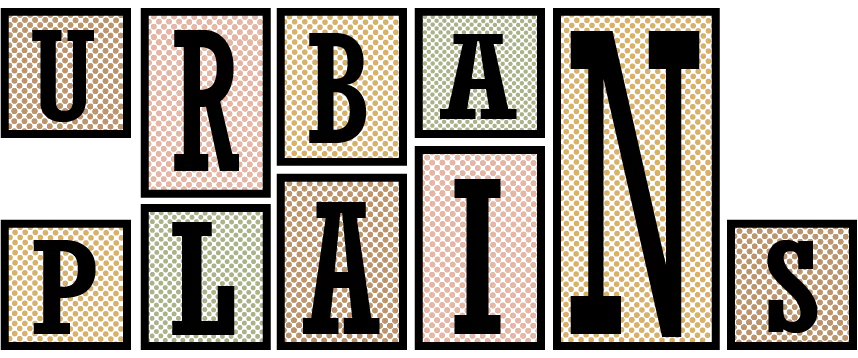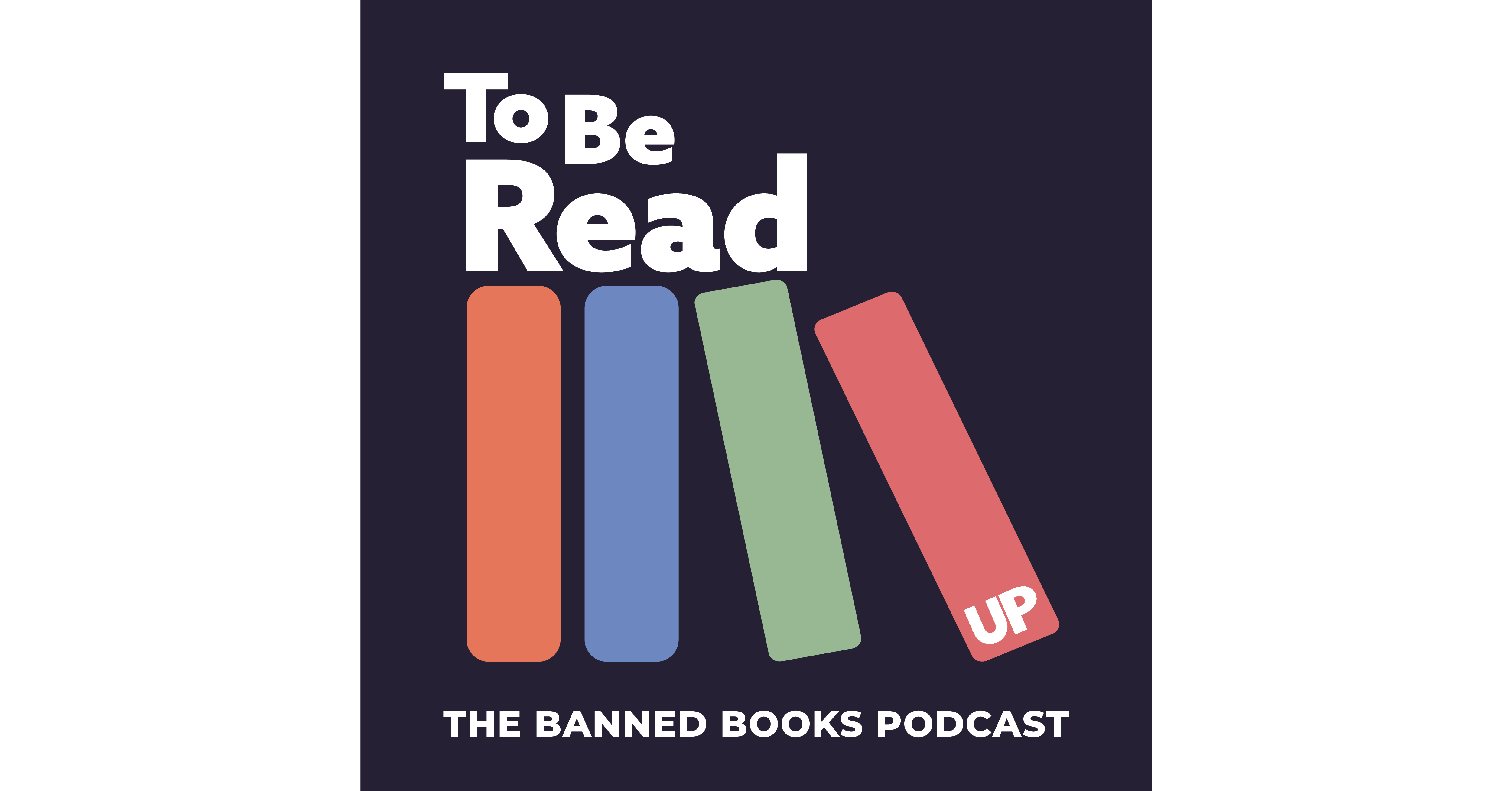In Episode 3 of To Be Read, Amanda and Gable discuss The 1619 Project by Nikole Hannah-Jones and The New York Times.
Lawmakers across the country are banning books they deem too dangerous for children to read—we added them all to our “to be read” list. Join us each month as we read and discuss banned books: what we liked, what we didn’t like, why they say they banned it, and why they really banned it.
Transcription
AMANDA O’BRIEN, HOST:
Welcome to the final episode of “To Be Read,” a Banned Books podcast presented by Urban Plains. This month’s episode we’ll be discussing the 1619 project by Nikole Hannah-jones and the New York Times. My name is Amanda O’Brien.
GABLE THOMPSON, HOST:
And I’m Gable Thompson. The 1619 project was published in 2019 and prompted a lot of the more recent discussions of critical race theory being taught in classrooms. The idea of the 1619 project is that America began in 1619 with the arrival of the first slaves to the country, not in 1776 with the signing of the Declaration of Independence.
Gable Thompson
The goal of this reframing of history is to recognize the importance of Black Americans to American history.
Amanda O’Brien
Something that I really enjoyed about this book was the structure of it and how it sort of was broken up with sort of poems and literature with artwork and with essays written by different black authors. I thought that was a really interesting approach to it, and I like that it gave it light, gave way for black authors to tell stories about black Americans rather than what we’re typically used to when when learning about history, which is a very it’s a very white approach to history.
Amanda O’Brien
I think a lot of times our history books are taught only by and about white people in history. And it’s like very rare that we sort of discuss the the impact of black Americans on history. I feel like when I was in high school and middle school in grade school, the only time that we’d really talk about black history was during Black History Month.
Amanda O’Brien
And so I think that this is a really interesting way to sort of restructure that historical approach.
Gable Thompson
It’s like this is what happens when black Americans are allowed to go through history and decide what they think is the most important as opposed to it was always been told, always been decided by white Americans.
Amanda O’Brien
Yeah. And I really I really enjoyed that. And I think that it’s having the poems and literature and artwork I think was really important because like those works of literature and art are so important to history. I think when we sort of look at literature and a lot of times when we’re thinking about like the classics and everything, we’re only kind of looking at white literature.
Amanda O’Brien
And so I really like that. It kind of gave way for black authors to write about history through that. And like show, show people what black history really looks like and what American history really looked like through the eyes of black people because it’s definitely a very different way than what we are typically taught.
Gable Thompson
Our history is very much like only in classrooms, only certain, like black figures are taught like Martin Luther King and Harriet Tubman are like the ones that like I remember being taught the most. But we ever, rarely ever hear from like like the writings of Malcolm X or Frederick Douglass or W.E.B. Du Bois. Other important black figures had a lot to say about the treatment of their race in our society.
Amanda O’Brien
Yeah, I feel like I probably didn’t learn about Malcolm X until I was maybe a junior in high school. That’s something that sort of we never really look at too much in schooling, at least in my schooling. And it seems like in your schooling, too, that’s not something we’re really ever taught about. And so I really enjoyed reading this book and learning a lot about history and how it was so different than I think what we were actually taught in school, which at least I know in my experience.
Amanda O’Brien
A lot of times with history classes especially, it’s like you would go in one year and learn something and then the next year your teacher would come in and say, So that was actually wrong. And this is what happened because I don’t think you’re ready to learn the actual truth yet when you’re younger. I know it’s kind of has the goal of creating like children’s books as well that kind of teaches history.
Amanda O’Brien
I think that there’s a children’s book that they put out under the 1619 project already, and so it’s kind of figuring out a way to have that conversation, but especially with younger people and like it, it clearly understands how to relate to the audience and what younger people are ready for and what they’re not ready for and how to have those conversations with young people.
Amanda O’Brien
And I think that’s interesting because I think that’s a big concern that people have about the 1619 project is they think that it’s inappropriate for young people or that people aren’t like it’s a different way than what we’ve always been taught. So that I think to some people makes it wrong or bad. So I like that it sort of considers its audience when it’s putting out content for the 1619 project.
Gable Thompson
Now it did receive a lot of backlash from certain communities in regards to people thinking that it’s not something they ever want to be like shown to their kids in school or like some people might even consider dangerous. I know President Donald Trump had in response to the 1619 project, made his own curriculum or like his own framing of history, which is already very similar to what is taught in school.
Gable Thompson
So I don’t know why he yeah. That’s made a new one. It’s I think actually worse though because a lot of historians have said like it’s very inaccurate called the 1776 commission. It was one of the last things he did in his presidency. He very much rushed through it and it’s a document that sort of talks about aspects that are important to American history but then also like names things that like were obstacles that had to be overcome.
Gable Thompson
And it talks about slavery as something that like a presence that was like not a part of the American ideal. It was just sort of like a necessary evil. It was more like treated more like an invading force. As for like an actual institution that our founding fathers imposed in our society.
Amanda O’Brien
Yeah, it kind of looked at slavery and pushed it aside as if that wasn’t a major part of American history. And the 1619 project kind of had the focus of saying that black Americans had a very major role in the history of America. And that’s sort of why the 1619 project is named what it is, because like American history didn’t, didn’t just start when the Declaration of Independence was signed.
Amanda O’Brien
It didn’t just start when the country was really formed. It started before that when sort of the presence of a black Americans were brought in as slaves that was like the beginning of America and it was a very major part of our history. So to push it aside and say that it wasn’t was, you know, like a major aspect of history is very, very interesting approach to it.
Amanda O’Brien
And I know that current President Joe Biden, as soon as he was inaugurated, like a couple hours after he like canceled the 1776 commission. So it’s kind of just a rush job that never went anywhere. But yeah, it’s definitely interesting because like you were saying, it was it had a lot of historical inaccuracies and it was kind of called out by a lot of historians for that and how it just sort of had things that just weren’t really a part of history and they included it as if it were, which is a very interesting thing because I know that the, their response to the 1619 project was claiming that it was propaganda meant to make people view white Americans as the bad guy of history. And so in calling the 1619 project propaganda they created the 1776 commission which they think is the correct way to teach history. And then they filled it with historical inaccuracies.
Gable Thompson
If I remember off the top of my head some of those inaccuracies included George Washington. I was told as a kid like freed all of his slaves when he died because it was like he was against the institution of slavery. But that’s not true. He only freed one of his slaves upon his death and like he told his wife Martha to free the rest of the slaves in his will.
Gable Thompson
But she didn’t do that. So it’s just a blatantly false story that is both in the commission and also just something that is taught in American schools. Another thing was he made a claim in the 1776 Commission that Martin Luther King would be against the ideas of like affirmative action and like prioritizing help for one race of people because that would be seen as racist.
Gable Thompson
But that was the policy he like explicitly supported. Like he had speeches about how the white man needs to pay back the black man for like all the wrong that’s been done and all the free labor that they’ve taken from them. And that’s sort of that disparity sort of like is what left this community in such economic turmoil for so long.
Gable Thompson
But it also like Trump is like trying to ignore that, trying to like push under the rug, make sure like no one like ever like thinks that’s the reason.
Amanda O’Brien
Yeah. And I if I remember correctly, I’m pretty sure that Martin Luther King Jr’s daughter even sort of commented on it and how that was completely inaccurate and a complete misrepresentation of what her father believed in. So it’s interesting that they made the point to include it when it clearly wasn’t factual. This has been our final episode of “To Be Read.”
Amanda O’Brien
Thank you for following along with this Banned Books podcast. You can find us on Instagram @Urban_Plains or view our website urban-plains.com.

